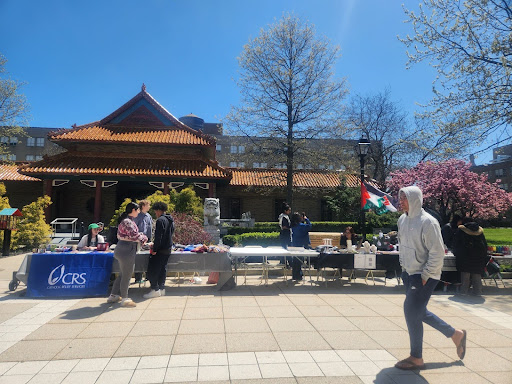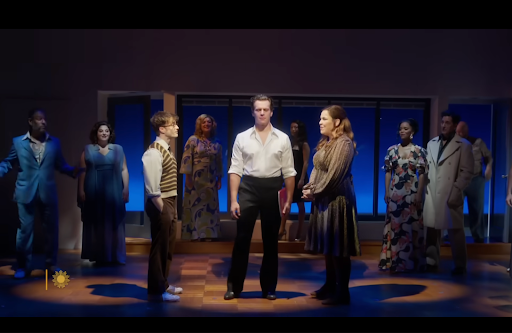For theatre-goers who enjoy drama that wrestles with sensitive topics and challenges the audience to think, the Broadway production of Oleanna is a perfect fit.
The compelling drama focuses on the power struggle between a college student named Carol and her professor, John.
Frustrated that she is failing his class, Carol goes to her professor’s office and tries to explain that she simply does not understand what he is trying to teach. John appears to be less than willing to listen at first, since he is distracted by his nomination to obtain tenure and the new house he is going to buy because of it, but he soon takes her confusion to be a mistake in his teaching and feels terrible. In an attempt to help her pass the class, he offers to re-teach the class to her after hours in his office.
At first, the plot seems to primarily focus on the tainted role that higher education plays in society. However, when the second portion of the show begins, the play takes a radical turn when Carol files a sexual harassment complaint against her professor, putting his tenure and his comfortable lifestyle in danger. What results is a drastic shift in power between a professor and his student. While John initially held Carol’s future in his hands with her grades, Carol now controls the outcome of her allegations against John. As much as John argues that she wrongly took his words and his actions out of context, Carol does not stand for it. She insists that it is not his intention that gives meaning to his words; it is her understanding of them.
What makes Oleanna such a provocative drama is that there is no blatant answer to who is right and who is wrong. There are no explicit signs of sexual harassment in John’s behavior that can confirm the allegations Carol makes against him. However, when Carol recounts his words and actions within her context, the possibility that it is sexual harassment can be understood.
Essentially, the play questions the concept of being “politically correct” and how it can lead to gaps in human communication; with no solid evidence for either argument, the audience is left to leave the theater talking among themselves as to who was in the right and who was to blame.
Oleanna, written by playwright David Mamet, originally debuted in 1992. Though it met instant popularity upon its initial run, the show never made it to Broadway. More than 10 years later, Oleanna has finally made it to the Broadway stage. Despite how drastically society has changed since its premiere, the play remains just as invigorating and thought-provoking as it was in its first performances.
In order to facilitate the conversations that take place among audience members at the end of the show, the producers of Oleanna instituted an event called “Take a Side: The Oleanna Talk-Back Series.” At the end of every show, different panelists and one moderator take the stage and invite the audience to the front of the orchestra seats for a discussion about the major themes and questions of the play. Though the institution of the series takes away from the powerful note that the play ends on, it provides a chance for audience members to voice their opinions on who they believed was the true
victim in the show.
It may be the play’s first time on the Great White Way, the same cannot be said for the people behind in the production.
Director Doug Hughes is no stranger to Broadway after directing shows such as A Man for All Seasons and Inherit the Wind, as well as winning the Tony Award for Best Direction of a play for Doubt. Bill Pullman, who plays John in the two-person cast, began his professional acting career through New York theater in 1983, even though he is currently best known as a film actor. Julia Stiles’ role as Carol, on the other hand, is her Broadway debut despite her previous experience with theater.
Like Pullman, she is best known as an actress in films such as 10 Things I Hate About You and The Bourne Identity.
Oleanna is not a show for those who simply enjoy being dazzled by extravagant sets, large-scale dance numbers and catchy songs. It is, however, the perfect way to spend an evening for those who enjoy dramas that challenge their preconceptions and send them out of the theater with questions still buzzing in their head.
















